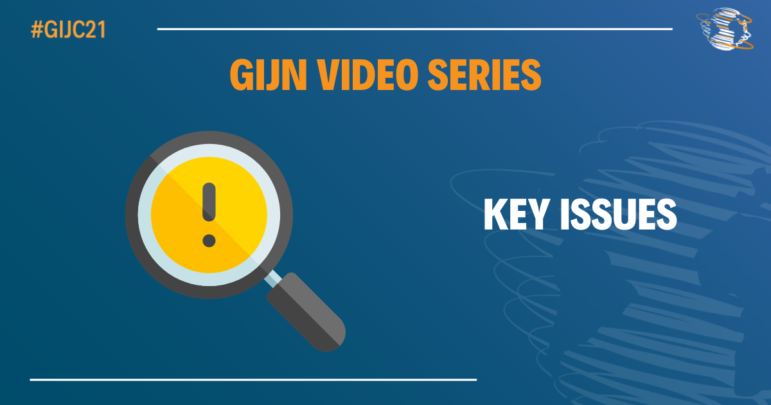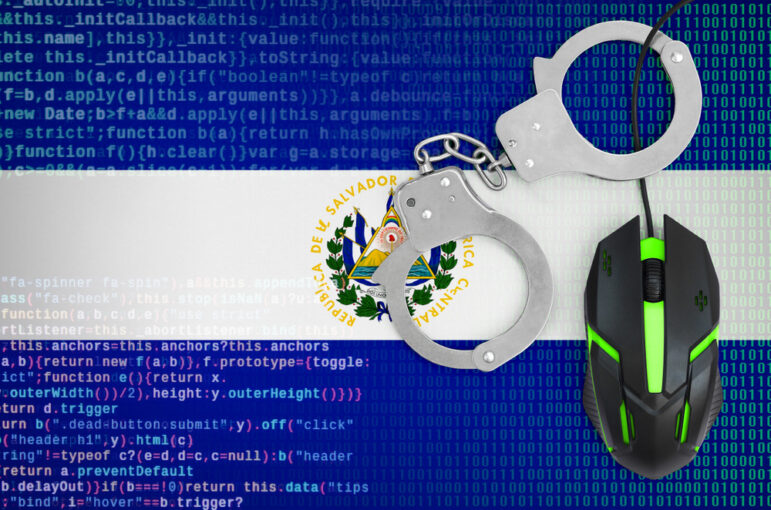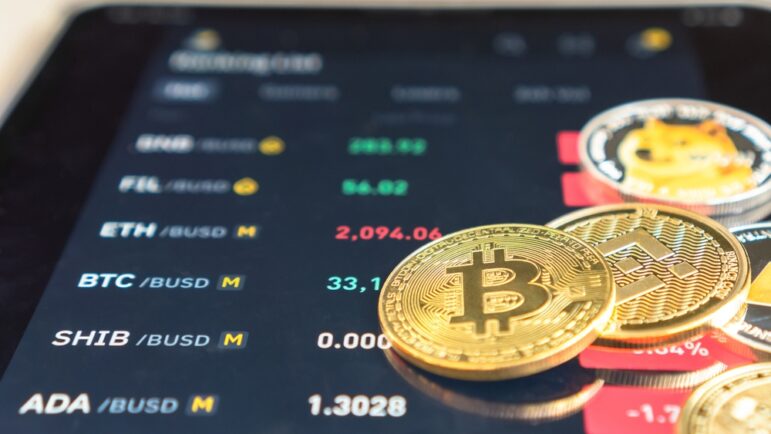

Video Resources for Health, Women, Podcasts, & Indigenous Issues
 For 20 years, GIJN conferences have helped spread the best practices related to investigative journalism around the world. Our last Global Investigative Journalism Conference — GIJC21, held in November — was no different. We’re now releasing videos from the conference, and this week we’re featuring topics ranging from investigating health issues and creating podcasts to newsroom leadership for women and projects by Indigenous journalists.
For 20 years, GIJN conferences have helped spread the best practices related to investigative journalism around the world. Our last Global Investigative Journalism Conference — GIJC21, held in November — was no different. We’re now releasing videos from the conference, and this week we’re featuring topics ranging from investigating health issues and creating podcasts to newsroom leadership for women and projects by Indigenous journalists.
Digging into Health and Medicine
As the COVID-19 pandemic took hold, journalists worldwide suddenly found themselves on the health beat, trying to make sense of competing claims, varied specialists, and a scientific landscape that seemed to change by the day. This GIJC21 session featuring Re-Check’s Serena Tinari and Catherine Riva, as well as Syed Nazakat from DataLEADS, explored topics related to COVID-19 including drug development and approval, and offered tips on evaluating scientific studies, understanding conflicts of interest, and exposing fraud and malpractice. Rivera and Tinari are also authors of the GIJN Guide to Investigating Health and Medicine, available in seven languages.
Investigative Podcasts
Podcasting has grown exponentially around the world — and investigative podcasts are among the most popular series. The format is well suited to the twists and turns of an investigation and podcasting brings new audiences to in-depth stories. Yet the field is crowded and it takes skill to produce a good podcast. What does it take to get into this medium? How can you benefit from using effective audio and storytelling techniques? This GIJC21 panel featured reporters and producers who have turned their investigations into impactful and award-winning podcasts in Taiwan, Slovenia, the Middle East, and North America.
Women and Investigative Journalism: Tips on Leadership
Leading women investigative journalists from around the world shared leadership tips and gave advice on what has helped them during their careers. Hosted by GIJN deputy director Gabriela Manuli, this session covered a wide range of topics, including imposter syndrome, how to succeed in a male-dominated environment, adapting your personal leadership style, and balancing work and family. Featuring the Pulitzer Center’s Marina Walker Guevara, The Reporter’s Sherry Lee, and Motunrayo Alaka from the Wole Soyinka Centre for Investigative Journalism, and others.
Indigenous Investigations
Indigenous communities comprise 370 million people in 90 countries — 5% of the world’s population — and are custodians of 80% of the world’s biodiversity. At the same time, these communities are often under siege by dominant cultures, have seen their resources stolen and their people subject to discrimination and abuse. At this GIJC21 panel, Indigenous journalists from Australia, Canada, and the United States discussed their award-winning investigations, ranging from land theft by universities to health care for Indigenous children.
Previous installments of this video series include “Investigating Organized Crime and Corruption,” “Investigating with Data,” and “Funding Your Investigations and Business Strategies.” Coming next week: GIJC21 videos on safety and security. Check GIJN’s YouTube channel for more.
Additional Resources
GIJN Guide to Investigating Health and Medicine









